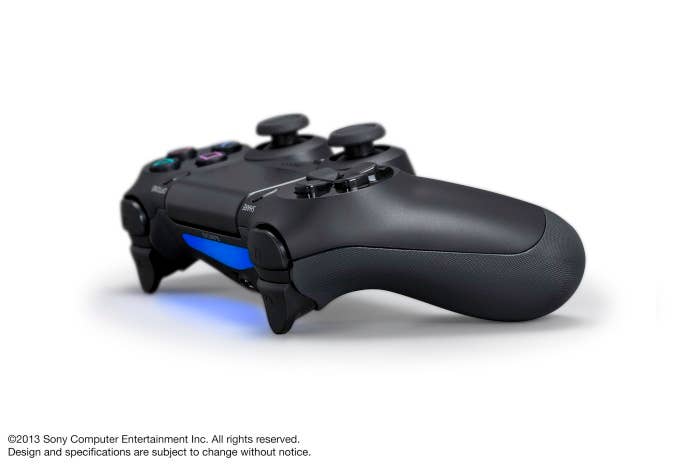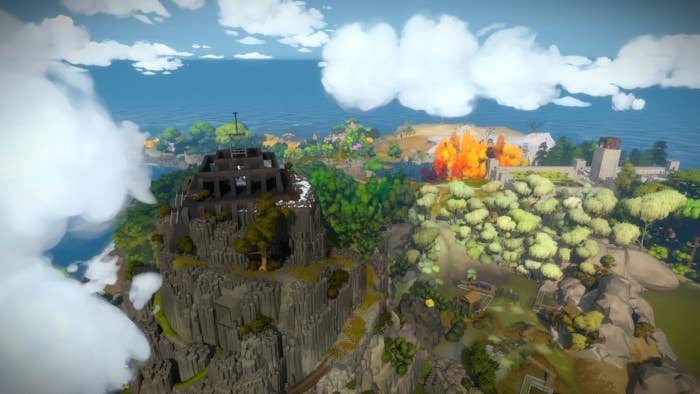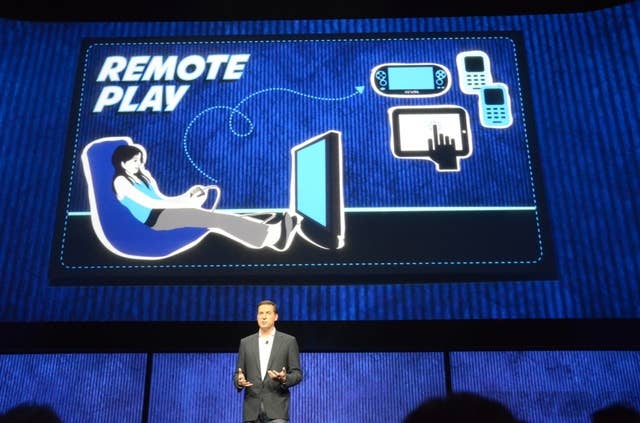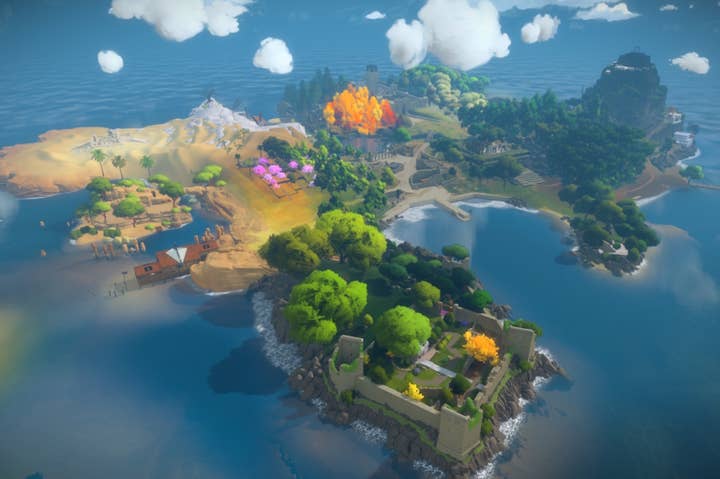Escaping the Cell: Are Developers Sold on PS4?
From indies to triple-A developers, we get the reaction to the PlayStation 4 from those making games
Sony's initial pitch for the long-awaited PlayStation 4 is that it's developer-centric hardware, designed with the intention of reducing financial, technical and administrative barriers to publishing on home consoles. The PlayStation 3 was famously obtuse, but according to new system architect Mark Cerny, Sony has built the PlayStation 4 as "a platform by game creators, for game creators."
GamesIndustry International approached developers with real-world experience of creating games - from indie to triple-A, mobile to console - to gauge their initial reactions to the specifications, services and software from a company finally lifting the lid on its next-generation gaming ambitions.
Our panellists were:
- Dominic Matthews, Ninja Theory
- Matthew Seymour, Heavy Iron Games
- Robert Troughton, Pitbull Studios
- Will Luton, mobile and free-to-play games consultant
- Simon Barratt, Four Door Lemon
- James Brooksby, Born Ready Games
- Mike Bithell, indie game developer
- Simon Prytherch, Fluid Games
- Martyn Brown, Insight for Hire
What were the standout features of the PlayStation 4 reveal for you?
Dominic Matthews: I think it got glossed over a little, but hearing Sony's intended commitment to self-publishing on PlayStation 4 sounds very promising. The lower the barriers to entry the more diversity and creativity we're going to see in video games. It was also very interesting to see Sony not only talk about the strong social aspect of future gaming but actually go as far as integrate a Share button into the control pad. A big step in recognising how players want to interact with each other outside of gameplay.
"Many of the past pledges that came from all the first-party manufacturers on their current generation systems look like they will now become realities"
Matthew Seymour
Matthew Seymour: The standout was the whole and very comprehensive PlayStation 4 package. Many of the past pledges that came from all the first-party manufacturers on their current generation systems look like they will now become realities with the release of the PS4. You'll have the horsepower to create eye-popping games with amazing physics while offering up varied interface opportunities but also the robust connectivity to play what you want, when you want, on any Sony device you may have. It's really all about the one-stop shop if you want to succeed these days, just ask the folks at Apple and Amazon.
Robert Troughton: I loved that it was gaming-centric. They've chosen components which should allow them to release an affordable console that is still a big leap from the last generation. For me, I think the standout feature is going to be the near-instant play where gamers won't need to wait for lengthy installs - a huge problem on PS3 - or long downloads. There are still the gimmicks there - the touch control on Dual Shock, the PlayStation Eye stuff, I'll be interested to see how those are brought into games - but those do still seem like unproven gimmicks to me.
Simon Barratt: It was great to see the specifications coming out from Sony, as exciting as the leak stories all are for people it does hurt a lot of small and medium developers as the platform holders for obvious reasons try to tighten up the people who 'need to know' ahead of announcements.

On the technical side of things the 8GB of GDDR5 confirmation was really exciting, the number of parallel cores and the speed of the memory containing the data that those cores operate on is the most important thing for modern games, be it more 'out there' indie games, big all action first-person shooter games or somewhere in between. I think people quickly jump to the conclusion that somehow that doesn't matter for certain innovative games but the quicker and easier it is to have a performant game running on a platform the more focus can go into the gameplay iteration, polish and overall feel.
Feature wise, I'm really excited about the Gaikai integration, twitch.tv / ustream and also YouTube channels covering Minecraft and such have become a massive part of a lot of gamers lives. I had a lot of fun even with the initial social gameplay aspects in OnLive and it's great to see Sony make this a core part of their new offering. It was also good to see them acknowledge the need for gamers to get up and running quicker, while it's great to be able to get content updates and patches all the time I see and hear a lot of frustration regarding updates from gamers on all major console platforms.
James Brooksby: As a developer, the standout feature is the ease of which we will be able to develop for this new system compared to the previous generations of console machines, that have slowed fast paced and iterative development; a wise move indeed. Secondly, the social aspects of the PS4 are going to be great; watching and interacting with others gameplay streams is going to make playing and sharing really fun.
Mike Bithell: I found myself getting far more excited about the service-side stuff than the games. The integration of Gaikai has been handled really smartly, and I think that video record/upload stuff is going to be something of a Trojan horse. I prattle on to anyone who'll listen about how big a part I think YouTube plays in indie game success nowadays, and putting that element of performance and sharing front and center is a great statement of intent.
"I prattle on to anyone who'll listen about how big a part YouTube plays in indie game success, and putting that element of performance and sharing front and center is a great statement of intent"
Mike Bithell
Will Luton: It was always going to be what David Perry had to say - I have a great deal of respect for him. Gaikai and the cloud are the best link Sony has to the future of games: moving away from expensive iterative hardware launches to make PlayStation a service. The money is always in access to content, expensive specialist hardware is a barrier.
Looking at the early technical specs and services, how does this change the type of games you're able to create? Can we expect significantly better or alternative gaming experiences?

Dominic Matthews: Aside for the more powerful hardware which will obviously allow us to make better looking, smoother experiences, it's clear that the PlayStation 4 isn't just about power. I think the PlayStation 4 will ask different questions of developers, such as "how do people play together," "how do players engage with the game away from the main console," "how are you going to take advantage of the streaming technology." Ultimately, the aim is to make gaming more fun, which the answers to these questions have the potential to do.
Matthew Seymour: The types of games we can make for the PlayStation 4 go right back to the wide range of opportunities seemingly built into this new and accessible system, and Sony's efforts in streamlining the publishing pipeline for the establishment and independents alike. From the looks of things right now, they're building it and if the audience comes along for the ride, there is nothing stopping us from creating and publishing what we believe they'll want to play and enjoy.
Robert Troughton: With the improved hardware, as well as improved tools offered by such as Unreal Engine 4, I believe we're going to see another big leap in quality. Environments will undoubtedly become less static, characters and objects will be much more dynamic and reactive to player interactions. It's going to be fantastic to see what developers do with all of this.
"The games on display were nothing that couldn't be done on other hardware and indeed were, for the most part, the same old staples of AAA"
Will Luton
Simon Barratt: As much as I fondly think back to Vector Unit programming on the PlayStation 2, having a PC-like architecture is great news for everyone especially smaller teams who don't have the time or resources to focus on lots of unique hardware designs. This means we can focus more on the gameplay and the player focused aspects of the game. Players don't really care what is going on in between the game and the hardware only what they see and feel on the game-to-player part of the equation. This architecture removes that headache and lets us get on with spending our time where we want to be, which will bring more polished and interesting gaming experiences from studios of all sizes.
We've also seen some really great development tools from Sony both as the PS3 has developed and with the Vita which many developers say are some of the best tools we've worked with as an industry. Again, this is an important aspect in increasing the time we spend on the game rather than fiddly things that gamers just don't see.
Will Luton: The games on display were nothing that couldn't be done on other hardware and indeed were, for the most part, the same old staples of AAA. Even whatever it was that Media Molecule were demoing, used the Move. Hardware we already have. There's possibly new gimmicks in having players jump in to your game via Gaikai, but the video sharing elements have been done software side for a long while. Screen sharing with Vita is neat, but again, it doesn't make new experiences possible - it apes the Wii U and the other console-handheld link ups in history.
However, what is very heartening is the ostensible opening of the platform for smaller developers. Sony needs to drop the barriers and let small devs create what they wish. The mentality is to protect the platform from dross, yet open platforms with a content meritocracies have been producing the exciting outlier hits, like Minecraft and Angry Birds, amongst the crap which mostly gets little visibility. Consoles need this content first, not years down the line.
It's still very much an unknown how this new openness will work. [The initial contact] for indies to register interest still goes to a page asking for NDAs, company information and tools loan agreements.
"Bigger games will take longer to make and with bigger teams, leading to more risk at publisher level. That just means publishers will have no other choice than mitigate those risks and play safe"
Martyn Brown
Martyn Brown: I'm still not sure people want alternative or new experiences. Dealing with the mass market tends to ensure everyone dials down to the lowest common denominator. I wouldn't expect much more than similar successful genres and titles to any other generation, albeit more socially connected.
I'm not sure I really agree that more polygons and bigger worlds equal better games. Certainly bigger games will take longer to make (especially encompassing all the new features) and with bigger teams, leading to bigger budgets and more risk at publisher level. So I think that just means largely those publishers will have no other choice than mitigate those risks and play safe. Especially in a marketplace with serious questions being asked about the viability of the retail sector and a background given that broadband internet is not ubiquitous as yet. The mass market speed (up and down) will dictate if this works or not, I just hope it's not too premature in what it's trying to do.
Simon Prytherch: The exciting thing for us is the track pad for touch screen-like control mechanics of swipe, drag and draw. There is also mention of an iOS and Android app for second-screen and secondary controls. This combined with the integration with cloud and Vita should make for some great connected experiences and games with swipe and draw control mechanics.

The instant sharing will have a big impact on the social nature of how we play games. I'm interested to see how your friends will be able to interact with this feature and how it will help to market your game to a new audience.
Mike Bithell: There were some interesting tidbits there. Vita as a second screen, the 3D camera to detect room and controller precisely, there are definitely some possibilities there. I'm just crossing my fingers that the new layout hasn't broken the DualShock magic. As for system spec, we're seeing a smaller jump visually, but at my end of the scale, that just means less framerate headaches. I'll not be making David Cage-beating visuals any time soon, it'll serve my stuff nicely.
Did the PS4 presentation make you feel more or less excited about the future possibilities for PlayStation gaming? Do you personally see a new opportunity to develop on Sony platforms?
Robert Troughton: I felt much more confident about Sony going into the next generation after watching this. The Vita, for me, was a disappointment. So it's great to see that they have their mojo back. It's interesting to see that some of the old Xbox-exclusive developers are working on PS4 now too. I think with the Xbox 360/PS3, that was a big part of the war - more so than the hardware itself - so I'll be looking forward to Microsoft's announcements and follow ups from Sony about which developers each have coerced into complete or timed exclusives.

Matthew Seymour: I'm excited about the future and the new opportunities with Sony because it seems the truly accessible hardware and connectivity is in a place where all those promises we all made in the past to our gaming audience can finally be realized.
Mike Bithell: It's a strong console, with a very impressive service attached. The appearance by Jonathan Blow is a pretty big statement to guys like me too. Sony are already doing a lot to get indies on to their hardware, I'm sure that'll continue, and I'd love to be a part of it.
Dominic Matthews: I'm excited by the PlayStation 4, but at the same time I recognise the need for console gaming to change. Mobile gaming has overtaken console gaming in the way that it engages players, offers them experiences suited to their lives and allows them to connect with friends easily and without barriers. Aside from making large scale, spectacular power harnessing games for the PlayStation 4, I see the PlayStation 4 as an opportunity to change the types of games that we all make and think more about the player and not just the game.
"I would love to see Sony fully embrace digital and allow developers to set prices - the days of every console game costing $60 are surely coming to an end"
Dominic Matthews
James Brooksby: My family and friends and I have had some of the greatest gaming experiences on PlayStation platforms over the years. What I have seen and believe to be coming made me very excited about the future of PlayStation in all its guises. For us, it's definitely opened up a new opportunity as PlayStation is a platform that we can publish our games directly on it will be much easier to develop for than previous consoles.
Will Luton: It's hard to tell at this point. We got a bit of a sales pitch on lots of the things we've seen before - more teraflops, physics demos, slightly-closer-to-photorealism - it's diminishing returns. That wasn't exciting to me, but it is to some.
What else would you like to see Sony do in this new generation of video gaming?
Robert Troughton: Pricing is going to be very important. Will the consoles be subsidised by games, subscription to services or suchlike? Will they be released making a loss again? Consumers' pockets are even tighter this time around so I do feel this is going to be a very important factor in the success of any of the new consoles.
Mike Bithell: Hunker down and serve the gamers. As it stands, and at the price at which it's likely to be placed, the casual audience are unlikely to make the jump. For the next few years, Sony needs to keep on serving the kinds of people who stayed up to watch the video. This is a strong start, and I'm looking forward to standing in line for one this winter.
"Pricing is going to be very important. Will the consoles be subsidised by games, subscription to services or suchlike? Will they be released making a loss again?"
Robert Troughton
Matthew Seymour: Without going into more crazy things like VR helmets, the big thing I'd like to see to ensure the success of Sony and the gaming industry as a whole in the near future is to keep the price point reasonable for both software and hardware. And the better incorporation of broadcast TV viewing in the form of tightly and elegantly integrated electronic programming guides.
James Brooksby: I would like to see Sony embracing the gamers that got them to the top and not being too distracted by non videogame opportunities that may drag the PlayStation away from doing what it does best: play games. And I want to see Sony do well. Diversity is good, different ways for people to discover and enjoy games is good.
Will Luton: The problem with console gaming is that people who buy them are self-identifying "gamers" - they have to be. It's a slowly growing demographic. The opportunity for games in the future is in platforms that, like social web or mobile, are in front of everyone and offer experiences that are wide appeal and cheap, if not free. People didn't buy iPhones for Angry Birds or join Facebook for FarmVille, it's something non-gamers found whilst they were there.
I'd like to see Sony abandon the hardware refresh mentality and transform PlayStation in to a service for games (also music, film and TV) included in every television or box they or anyone else sells, with new and interesting content that is long-form and narrative-driven but offering something other than Übermensch violence. There's a great deal of talent in games and I'd like to see it put to use on something new, giving the cinematic experiences they make to everyone and letting games compete culturally with all the other media art forms.

Martyn Brown: They've made a lot of bold statements about how things will work, so I'd settle for seeing all that happen quickly. I got the impression that a lot of this stuff will be phased in over time, not out of the box, which was a problem for PS3 initially - especially for the PSN service. Developers used to complain about games being patched on day one, now it's hardware.
Simon Prytherch: I'd like to see deeper integration of the PS4 with both mobile and Vita, so that players can take their game with them when they are not at home. Social network integration, Gaikai and the cloud services are just the first steps.
Dominic Matthews: I would love to see Sony fully embrace digital and allow developers to set prices - the days of every console game costing $60 are surely coming to an end.

